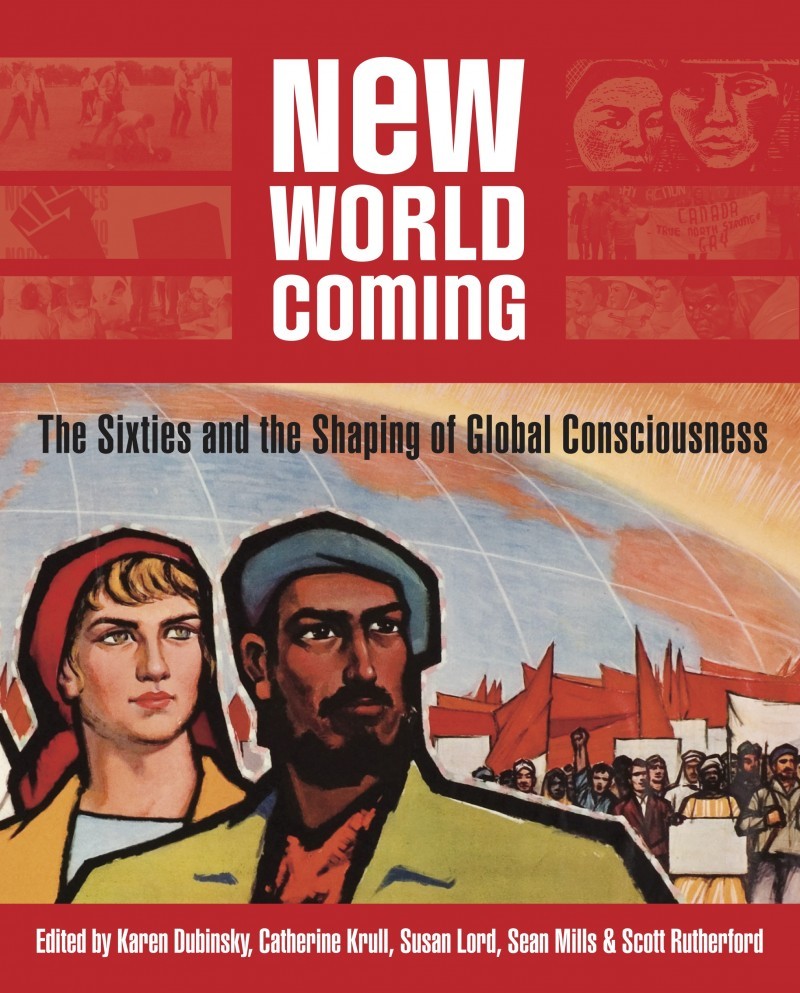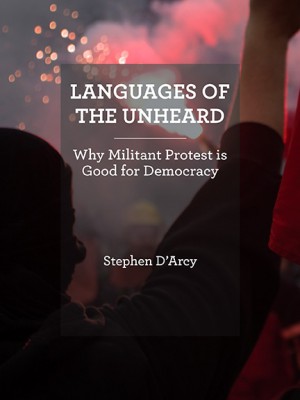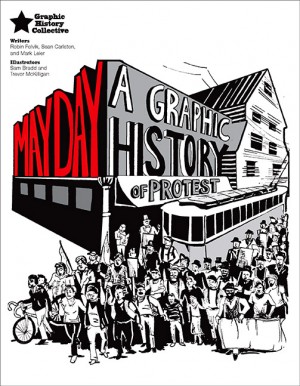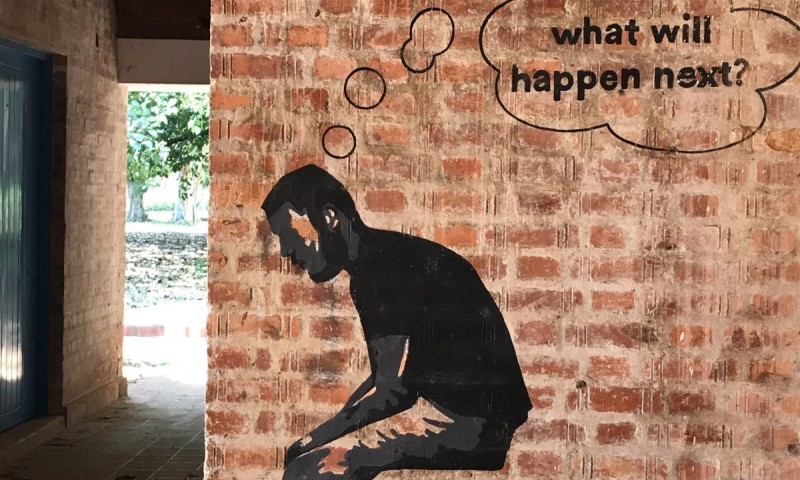
New World Coming
The Sixties and the Shaping of Global Consciousness
New World Coming: The Sixties and the Shaping of Global Consciousness is a collection of the most innovative essays from a major international conference of the same name, held at Queen’s University from June 13—16, 2007. The collection examines the many ways in which a “global consciousness” was forged during the Sixties.
In various sections, essays examine the ways revolution was imagined throughout the Sixties, the implications of the “nation” for various liberation movements, the complex politicization of bodies during this time, and the enduring legacy of the period in terms of lasting political movements and cultural landscapes.
Featuring a colour insert of protest poster art, this is the first anthology of its kind to bring scholars from many areas of the world together to discuss and debate the meaning and impact of these vastly transformative years.
Praise
New World Coming is a powerful contribution to the meaning of the sixties for today. Legacies of the sixties are all around us, from the participative democracy of Venezuela’s Bolivarian revolution to the passionate 2008 presidential campaign of the Obama generation. Yet the sixties are remembered only narrowly, not as a unique worldwide rebellion against the global status quo. New World Coming enters the battlefield of memory against those who would discredit the legacy before it repeats.
– Tom Hayden, author, The Long Sixties: From 1960 to Barack Obama and Writings for a Democratic Society
This collection of essays reminds us that the sixties were more than drugs and hippies. Contributors analyze and dissect the various meanings of this decade that still reverberates with us. This is definitely a book to possess for the richness of the contributions.
– Marcel Martel, Associate Professor of History, York University
A groundbreaking contribution to our understanding of the culture and politics of the 1960s. Unlike most studies of the period, which focus on youth revolt, student unrest, and middle-class alienation within the United States, this collection follows a different path—tracing the many meanings of ‘liberation’ from Mexican rockers complicating Cuba’s dominance in Latin American resistance movements to youth culture in Dakar to feminism in Palestine and Brazil.
– Patrice Petro, Professor of English and Film Studies, University of Wisconsin-Milwaukee
There is a tendency among some historians to tame the sixties, to turn a series of world-spanning uprisings into a safe nostalgic soundtrack. New World Coming restores the radicalism of the sixties, a period that initiated battles over power and privilege that continue to be fought to this day. The book is a model of committed, incisive, readable, and relevant scholarship.
– Jeet Heer, journalist and historian
Do you like your “Sixties” hard-boiled or over easy; well-done or bleu? No matter, the menu of this eclectic collection accommodates most tastes.
– Left History
New World Coming is a major reinterpretation that redefines the sixties experience in a global context. Utilizing a rich, diverse, and impressive breadth of work that straddles the globe from Sarnia to Palestine and just about everywhere in between, the collection makes us rethink our most basic assumptions of place, space, and meaning when it comes to this evocative period in history. This is a significant contribution to the historiography of the time, and an important new departure in sixties studies that gives readers an original perspective.
– Dimitry Anastakis, Professor of History, Trent University, editor, The Sixties: Passion, Politics and Style
This must-read eclectic collection of often pioneering articles provides a nuanced view of how the world was changing and how it was not in the 1960s. These highly readable articles, casting a critical eye on every corner of the globe, and every social movement, put the scholarly critical spin on “The Times They Are a-Changin.”
– Alvin Finkel, Professor of History, Athabasca University, editor, Labour/Le Travail
Contents
| Introduction | The Global Sixties Scott Rutherford, Sean Mills, Susan Lord, Catherine Krull, and Karen Dubinsky |
| Revolution from de Beat Lillian Allen |
|
| Part I | Nation-Decolonization-Liberation |
| Chapter 1 | Whose 1960s? Gender, Resistance and Liberation in Palestine Rabab Abdulhadi |
| Chapter 2 | Sarnia in the Sixties (or the Pecularities of the Canadians) Ian McKay |
| Chapter 3 | Moving into "The Master's House": The State-Nation and Black Power in the United States Van Gosse |
| Chapter 4 | “The Malcolm X Doctrine”: The Republic of New Afrika and National Liberation on U.S. Soil Dan Berger |
| Chapter 5 | The Soviet Communist Party and 1968: A Case Study Kimmo Rentola |
| Chapter 6 | Interpretations of Third World Solidarity and Contemporary German Nationalism Jennifer Ruth Hosek |
| Chapter 7 | The Canadian National Security War on Queers and the Left Gary Kinsman |
| Chapter 8 | Neo-Fascism, The Extraparliamentary Left Wing, and the Birth of Italian Terrorism Guido Panvini |
| Chapter 9 | Resisting the Sixties: A Dutch Reaction in a Global Perspective Tity de Vries |
| Chapter 10 | Transpacific Revolutionaries: The Creation of Latin American Maoism Matthew Rothwell |
| Chapter 11 | On Digging It: Correspondences between Dineh Uranium Miners and the Health and Safety Program of the Oil, Chemical and Atomic Workers Julie Boddy |
| Chapter 12 | Liberation Support and Anti-Apartheid Work as Seeds of Global Consciousness: The Birth of Solidarity with Southern African Struggles John S. Saul |
| Part II | Cultural Citizenship |
| Chapter 13 | Upon the Long Avenues of Sadness: Otto René Castillo and Transnational Spaces of Exile Michael D. Kirkpatrick |
| Chapter 14 | Cuban Film and the Burden of Revolutionary Representation María Caridad Cumaná Gonzalez |
| Chapter 15 | The Japanese Sixties: Kon Ichikawa’s “Tokyo Olympiad” Kyoko Sato |
| Chapter 16 | Consuming and Contesting “Soul” in Tanzania Andrew M. Ivaska |
| Chapter 17 | Exhibiting A Global Blackness: The First World Festival of Negro Arts Tobias Wofford |
| Chapter 18 | Rock ‘n’ Roll, Politics, and Society during the Italian Economic Boom Marilisa Merolla |
| Chapter 19 | Popular Culture as a Tool for Change: Rural Working-Class Theatre in Sweden Stefan Backius |
| Chapter 20 | A ‘Bubbling Volcano’: Edinburgh, the Festivals, and a Cultural Explosion Angela Bartie |
| Chapter 21 | Constructing Pariah Spaces: Newspaper Representations of Slums, Ghettos and Favelas in São Paulo and Chicago Sean Purdy |
| Chapter 22 | “No Axe to Grind in Africa”: Violence, Racial Prejudice, and Media Depictions of the Canadian Peacekeeping Mission to the Congo, 1960-64 Colin McCullough |
| Chapter 23 | Trip to Hanoi: Antiwar Travel and International Consciousness Franny Nudelman |
| Chapter 24 | Political Graphics of the “Long 1960s” Lincoln Cushing |
| Part III | Mobilizing Bodies |
| Chapter 25 | 1968: Springboard for Women’s Liberation Sheila Rowbotham |
| Chapter 26 | Group Consciousness in Brazil: appropriation (1964-89) Joana Maria Pedro |
| Chapter 27 | Reframing the “Whiteness” of U.S. Feminism: The Protest Movement, Radical Feminism, and the Abjection of Whiteness Amanda Third |
| Chapter 28 | Cuban Women and the Time of Transformation Sonia Enjamio Expósito, Lourdes Pérez Montalvo, and Inés Rodríguez Pedroso |
| Chapter 29 | Shamans of the Spring: Environmentalism and the New Jeremiad Michael Egan |
| Chapter 30 | More Dangerous Than Bombs or Bullets: Agent Orange, Dioxin, and the Environmental Imaginary Edwin Martini |
| Chapter 31 | Sex Reassignment Surgery in Ontario: Adrift in a Political and Cultural Climate Kristin Ireland |
| Chapter 32 | At the Point of the Lance: Gender, Development, and the Peace Corps Molly Geidel |
| Chapter 33 | Student Politics in Mexico in the Wake of the Cuban Revolution Jaime Pensado |
| Chapter 34 | “Women United Against the War”: Gender Politics, Feminism, and Vietnam Draft Resistance in Canada Lara Campbell |
| Part IV | Legacies of the Sixties |
| Chapter 35 | The Global Imagination of 1968: The New Left’s Unfulfilled Promise Georgy Katsiaficas |
| Chapter 36 | Red Power Legacies and Lives: An Interview by Scott Rutherford Lee Maracle |
| Chapter 37 | An Embarrassment of Omissions, or Rewriting the Sixties: The Case of the Caribbean Conference Committee, Canada, and the Global New Left David Austin |
| Chapter 38 | Mexico’s Rock Counterculture (La Onda) in Historical Perspective and Memory Eric Zolov |
| Chapter 39 | Continuing On: Deepening the Anti-Nuclear Movement since the Sixties Jim Harding |
| Chapter 40 | “Tear it Down”: Reflection of a Veteran Jaime Veve |
| Chapter 41 | Across the Universe: Rethinking Narratives of Second-Wave Feminism Alice Echols |
| Chapter 42 | Engaging the Past, Mapping the Future: Nuclear Weapons and Self-Determination—from Diego Garcia and Cuba to Iraq and Iran Cary Fraser |
| Epilogue | Third World Possibilities and Problematics: Historical Connections and Critical Frameworks Tina Mai Chen |
| Notes | |
| Selected Bibliography | |
| Contributors | |
| Index |









